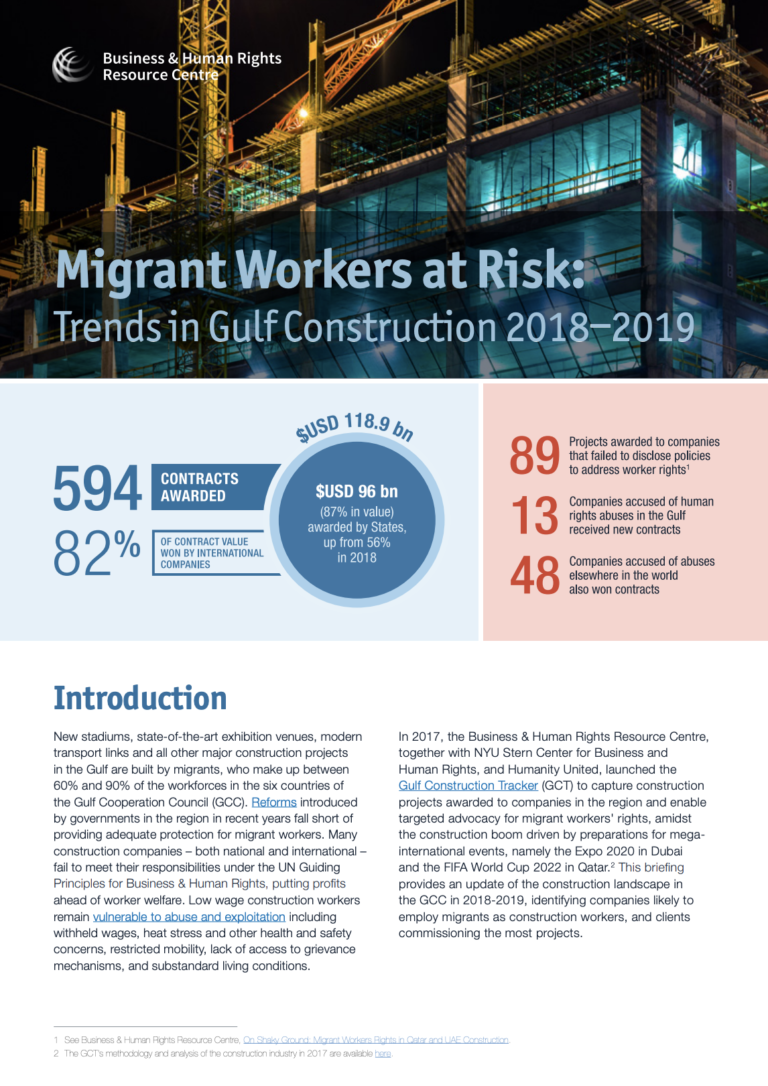An overview of the risks to migrant workers on construction projects across the Gulf.
Migrant workers make up between 60% and 90% of the workforce in the six countries of the Gulf Cooperation Council (GCC). Low-wage construction workers are at particular risk from labour exploitation from their employers, and face abuses including withheld wages, heat stress and other health and safety concerns, restricted mobility, lack of access to grievance mechanisms and remedy, and substandard living conditions.
The briefing issues recommendations for clients and companies on adopting and enforcing robust human rights protections for migrant workers.

